Blue Oval Vs Big Green: Environmental Ad Campaign Lays Into Ford … Again
The builder of the world’s best-selling vehicle, which just happens to be a large truck, finds itself in the crosshairs of yet another environmental ad campaign. Like past campaigns against the automaker, the coalition of four leading environmental groups claim Ford’s commitment to the environment pales in comparison to its thirst for profits.
Oh, and Ford Motor Company might as well change the name on its logo to “Trump.”
That’s what readers of The Detroit News and Detroit Free Press read on Saturday morning, after the Sierra Club (which is not a British Ford fan group, to be clear), Greenpeace, Safe Climate Campaign, and Public Citizen ran giant ads in both newspapers slamming the automaker for backing the Trump administration’s planned rollback of fuel economy standards.
Whoa, whoa, whoa, take it easy, Ford responded.
Gabbing on Gas: White House and California Still On Speaking Terms
Despite the growing animosity, both California and the Trump administration are still willing to discuss the country’s changing emission regulations. The state is currently heading a lawsuit against the Environmental Protection Agency, claiming it “acted arbitrarily and capriciously” in overturning the previous administration’s decision to maintain Corporate Average Fuel Economy standards.
While the proposals issued by the current administration will eventually see those targets rolled back, a final decision has not been made. The White House claims it wants to maintain an open dialogue with the Golden State, hoping to reach an agreeable solution, but the California Air Resources Board has argued it doesn’t seem to be acting on those assertions. Meanwhile, EPA head Scott Pruitt maintains that the state will not dictate federal fueling rules as automakers beg the government to do everything in its power to ensure a singular national mandate.
It’s an ugly situation, which makes news of a new round of meetings all the more surprising.
Take a Look at 2011-2014 Kia and Hyundai Fires, Safety Group Tells NHTSA
Almost all models occasionally burst into flames for one reason or another, but there’s too many older Kia and Hyundai models catching fire to write it off as a statistical inevitability, the Center for Auto Safety says.
In a letter sent to the National Highway Traffic Safety Administration on Monday, the nonprofit advocacy group used owner-submitted questionnaires from the NHTSA’s own website as proof that something’s amiss with certain 2011-2014 Kia and Hyundai models. 120 reported vehicle fires and 229 cases of melted wires in the engine compartment, smoke, or burning odors should be enough to spark an investigation, CAS said.
This is a Mess: EPA Begins Quest to End California's Fuel Waiver
The Trump administration has enacted phase two of its plan to revise Obama-era rules designed to cut pollution from vehicle emissions. In a proposal sent to the White House Office of Management and Budget on Thursday, the Environmental Protection Agency announced its intention to rescind the California waiver that separates it from the federal standards the state uses to regulate greenhouse gas emissions from automobiles.
Since allowing California to set its own emission standards would effective split the country’s auto market, the EPA has been clear that its ideal solution would be to cut a deal with the Golden State. Agency head Scott Pruitt previously said California “shouldn’t and can’t dictate [fueling regulations] to the rest of the country,” but acted in a manner that suggested a compromised could be reached.
This was followed by a lawsuit filed by 17 U.S. states, along with the California governor’s office, California attorney general, and the California Air Resources Board (CARB), alleging that the EPA had “acted arbitrarily and capriciously” in its decision to roll back the previous administration’s decision. While the odds are good that the Trump administration wasn’t ever interested in bending to California’s more stringent pollution policies, this was likely the point of no return — squashing any hope for meaningful negotiations.
French President Convinced Trump Wants to Kill German Cars; Steel Tariffs Strike U.S. Allies
There’s been quite a bit of the old “he said, she said” as the global trade war between developed nations coalesces. Germany has not covered U.S. President Donald Trump’s trade policy favorably, not that it has much reason to. His new tariffs on imported steel and aluminum has tested relationships with numerous countries and, while it isn’t the biggest exporter of metal to the United States, Germany has something to lose. Likewise, proposed duties on passenger vehicles have sincerely rubbed Deutschland the wrong way.
However, the issue was further complicated this week after a gossipy report surfaced claiming Trump told French President Emmanuel Macron in April that he would continue hampering the European auto manufacturers until there are no Mercedes-Benz vehicles driving in America.
Rebuking the Rollback: Science Advisors Claim EPA Ignoring Its Own Fuel Economy Research
Several science advisers for the Environmental Protection Agency claim the agency has ignored its own research in order to rationalize the push to relax corporate average fuel economy (CAFE) targets.
A group within the Science Advisory Board has recommended reviewing the EPA’s justifications for the intended rollbacks, including the agency’s conclusion that Obama-era auto efficiency requirements must be changed because they are too stringent. It’s hoping to take the agency to task and force it to show evidence that upholds is proposal.
While EPA head Scott Pruitt sides with the President and automotive industry by indicating the current standards are too strict, very little scientific research has been cited to support the claim. In fact, the revision seems to hinge mainly on the belief that automakers might not be able to adhere to the standards approved by the Obama administration in its final days. “Obama’s EPA cut the midterm evaluation process short with politically charged expediency, made assumptions about the standards that didn’t comport with reality, and set the standards too high,” Pruitt said in April.
Germany to Cities: Go Nuts With the Diesel Bans, Starting Now
It’s open season on compression ignition vehicles in the Fatherland. The birthplace of the diesel engine now says German cities can implement diesel driving bans whenever, and wherever, they want.
The Friday ruling by the country’s top court comes after a lawsuit against Germany and four other European Union member states by the EU, the result of higher-than-allowed air pollution levels in numerous urban areas.
“Thanks, dad,” the country’s auto industry must be thinking.
Bet You Forgot Today Was the NAFTA Deadline
If you forgot today was the deadline for finalizing North American Free Trade negotiations, don’t worry, so did practically everyone else. In fact, the whole affair is starting to feel like that old car that’s been sitting in your friend’s yard for far too long. He keeps telling you he’s going to fix it up and make it better than new. “This is the summer,” he says. But you know he’s just going to keep mowing around it while it continues to rust and collect mice, so you’ve tried to push it out of your mind.
Like the restoration, the entire concept of a deadline for the trade deal is rather arbitrary at this point. NAFTA’s initial target date for an agreement between the three countries was March 31st, roughly one year after negotiations began. The May 17th deadline was claimed by U.S. Speaker of the House Paul Ryan, who said Congress had to be notified under the Trade Promotion Authority statute.
“We need to receive the notice of intent to sign soon in order to pass it this year,” explained Ryan’s office. “This is not a statutory deadline, but a timeline and calendar deadline.”
Basically, Congress wants to influence the president and NAFTA negotiators to conclude talks swiftly and reach an agreement before midterm elections. But Mexican officials warned everyone not to get their hopes up. “The possibility of having the entire negotiation done by Thursday isn’t easy, we don’t think it will happen by Thursday,” said Mexican Economy Minister Ildefonso Guajardo earlier this week.
NHTSA Probes Latest Autopilot-related Tesla Crash
Last Friday’s crash of a Model S in South Jordan, Utah will get the magnifying glass treatment from the National Highway Traffic Safety Administration. The agency announced Wednesday it will send a team of investigators to probe why the vehicle — which the admittedly distracted driver said was in Autopilot mode at the time of impact — collided with a stopped fire truck at 60 mph.
It’s the second NHTSA investigation of an Autopilot-related collision this year.
Automakers to White House: Make a Deal With California on Fuel Economy
Despite pressuring Donald Trump to lower corporate fuel economy mandates since practically day one of his presidency, automakers are now urging caution. The U.S. Transportation Department has drafted a proposal that would freeze vehicle requirements at 2020 levels through 2026, the Environmental Protection Agency’s lead administrator made a public case for rolling back mileage targets, and the White House seems ready to help car companies lower the bar.
Automakers seem to have won, so why the change of heart?
Rolls-Royce: We'll Keep Slinging V12s Until the Government Comes and Takes Them Away
Few automakers clutch tradition with the same vise-like grip as Rolls-Royce. The British motor car builder, which recently debuted a high-bodied car (known in plebian circles as an “SUV”), isn’t planning on following in its rivals’ electrified footsteps just yet.
Oh sure, there’ll be electric cars, even in the coming decade, but the brand’s attachment to 12-cylinder engines — and the upper-crust clout those motors carry — can’t be shaken just because Jaguar and Germany have their sights set on a green stable.
This attitude mirrors Porsche’s devotion to the steering wheel. That said, the brand does have a date in mind for the full electrification of its products.
Sergio CONFIRMED as Trump's 'Favorite' Auto Exec, Hackett and Barra DESTROYED
Ten automotive executives met with President Donald Trump this week, hoping to find ways to increase domestic production and mitigate the coming changes to corporate fuel economy regulations. The meeting, held in the White House’s Roosevelt Room, included General Motors’ Mary Barra, Ford’s Jim Hackett and Fiat Chrysler’s Sergio Marchionne. While a large portion of the event was spent discussing the administration’s attempt to roll back established fuel economy rules, Trump was focused on returning manufacturing jobs to the United States.
The president noted that FCA’s decision to spend $1 billion in order to expand truck assembly in Michigan made Marchionne more appealing than his contemporaries. “Right now, he is my favorite person in the room,” Trump said.
Lawmakers Demand MPG Details, States File Lawsuit Against EPA
America’s gas war is heating after 17 states, as well as the District of Columbia, filed a lawsuit against the Environmental Protection Agency’s decision to redefine U.S. vehicle emissions and fuel efficiency rules through 2025.
In April, EPA chief Scott Pruitt said the existing standards for model year 2022 to 2025 vehicles should be revised. The suit, filed in the U.S. Court of Appeals for the District of Columbia, alleges the EPA acted unpredictably, failed to follow its own regulations, and was in direct violation of the Clean Air Act. New York Attorney General Eric Schneiderman claimed the “Trump administration conducted a phony study” to justify altering emission rules to appease automakers and the oil industry.
Meanwhile, U.S. Representatives Doris Matsui of California and Paul Tonko of New York are demanding the EPA hand over all documents related to the study that resulted in the proposed changes to fuel economy standards.
Pentagon Joins Tech Startups in Race for Autonomous Vehicles
It’s been a rough road for autonomous vehicles. Despite development progressing significantly over the last decade, tech companies and automakers have been confronted with a myriad of issues. There have been intellectual property lawsuits, public safety concerns, and a recent backlash from government officials who are starting to wonder if the entire concept has been oversold.
However, the government still wants self-driving cars, especially the Pentagon. The Defense Advanced Research Projects Agency (DARPA) has been researching autonomous cars since the technology was in its infancy and, with so many firms trying to bring the technology to market, the military sees no reason it shouldn’t be the first.
It’s not like it doesn’t have the money.
EPA Head Defends Fuel Economy Rules, Industry Ties On Capitol Hill
Environmental Protection Agency chief Scott Pruitt spent the majority of his Thursday being raked over the coals by the House Energy and Commerce subcommittee before a second (even uglier) exchange with the House Appropriations subcommittee. The majority of the time was spent addressing concerns surrounding Pruitt’s expenditures — things like unnecessary first-class travel, a $43,000 soundproof phone booth, and his 24-hour security team. There were also discussions about alleged death threats against Pruitt and EPA staff, his overall conduct, and even a little bit on environmental policy.
Those discussions, however, saw some subcommittee members accuse Pruitt of championing the profits of oil companies and automakers over the wellbeing of the planet. The EPA head spent the duration of Thursday defending his actions, including planned regulatory rollbacks on fuel economy. He also supported the automotive industry’s proposal to abolish 87 octane and replace it with 95.
As ugly as the day was for Pruitt, Republicans occasionally hopped on the mic to gently support him. Rep. Kevin Cramer of North Dakota said, “I think the greatest sin you’ve done is, you’ve actually done what President Trump ran on.”
Appeals Court Says Trump Cannot Delay CAFE Penalties
During the Trump administration’s year-long quest to roll back Corporate Average Fuel Economy (CAFE) targets, it attempted to give automakers in violation of the current standards a break by delaying the scheduled increase of penalties. The logic here is that the federal government is reassessing the Obama era standards, so it lumped in the new fines that were supposed to go into effect last July.
Those penalties represent an increase of $8.50 for every tenth of a mile per gallon a new car consumes above the minimum fuel standard. But with the new targets in quasi limbo, the updated fines were not being applied.
On Monday, a federal appeals court ruled the Department of Transportation cannot do that. Since the old rules are technically still in effect, the court ruled that automakers are still subject to the fine.
GM Korea Won't File For Bankruptcy, But It's Not Out of the Woods Yet
If you spent the weekend in a state of breathless suspense, allow us to let some air out of that balloon. General Motors’ embattled Korean division, source of America’s smallest GM cars, has pulled back from the brink of bankruptcy after reaching an 11th hour deal with its union.
The tentative bargain opens the door to government assistance for the money-losing automaker, and should keep wee little vehicles rolling out of the country’s assembly plants.
America's Gas War Begins
Now that the Environmental Protection Agency has officially confirmed its intent to roll back Corporate Average Fuel Economy (CAFE) standards, the opposition has kicked things into high gear, mobilizing for the coming battle.
In one corner you have the White House and EPA Administrator Scott Pruitt seeking lowered emission mandates. They claim the Obama administration created unfeasible fueling regulations, noting that the public regularly opts for less-efficient trucks and SUVs and largely ignores the purchase of electric vehicles. In the other corner you have a handful of Senate Democrats, environmental groups, and a bunch of blue states led by California lawmakers. They all say the preexisting rules are not only feasible, but essential for the good of the nation.
If you’re wondering which side of the highly partisan issue is correct, we’d argue it has almost everything to do with your point of view. Both sides can make a fairly strong case, and will do just that as the battle heats up. Fortunately, this may not end up being a legitimate civil war — if the California Air Resources Board (CARB) is to be believed.
All About Imports: Chinese President Tries to Mellow Blossoming Trade War With U.S.
“Paramount Leader” and Chinese President Xi Jinping clearly hopes to defuse China’s trade situation with the United States after Donald Trump launched an aggressive tariff hike on metals last month. The People’s Republic has already filed a complaint with the World Trade Organization alleging Trump’s decision to impose additional duties of 25 percent on steel and 10 percent aluminum violate international trade rules.
It’s also requesting 60 days of consultations with the United States to resolve the dispute.
There’s also an olive branch on the table. Xi has promised to cut auto import taxes and improve intellectual property protections in a bid to bolster foreign exports and ease tensions before the U.S. and China enter into a full-blown trade war. Meanwhile, the White House is threatening to increase duties on $50 billion worth of Chinese goods in response to claims that China essentially bullies foreign companies to hand over technology in order to sell it inside the country.
The NHTSA Might Finally Get That Lead Administrator It's Been Missing
It’s been over a year since the National Highway Traffic Safety Administration had someone officially running the show. While plenty of political appointments have been held up by Senate approval, the NHTSA is one President Trump has neglected since taking office. Former General Electric executive Heidi King has been the Deputy Administrator since September, and will be the one Trump taps to assume overall leadership of the agency. It’s about time.
The NHTSA has to cope with the planned fuel efficiency changes, oversee the neverending Takata airbag recalls, and start doing some damage control with autonomous vehicle development. While the recall issues are likely to remain business as usual, the current administration has pursued lax standards for both autonomous safety and corporate efficiency rules — and both have seen growing opposition.
Entire states are already pushing back against the proposed fuel efficiency rollbacks and there have been two fatalities involving self-driving and semi-autonomous technology within the last month. Because of this, promoting King might be a wise choice. Her corporate ties have some people concerned she’ll go easy on businesses, but at least she already has some experience in dealing with the big issues.
Team Trump Eases Demands on NAFTA's Regional Auto Content
The United States is softening the contentious automotive content requirement mandates pushed by the Trump administration as part of NAFTA renegotiation talks. While the demand is only one of many asks coming from the U.S., both Canada and Mexico said forcing 85 percent of a vehicle’s overall content to be sourced from the three countries (in order to side-step tariffs) was a nonstarter. Over the past year, the issue became a major sticking point in the trade talks — hindering progress and possibly dooming them to failure.
While Trump’s intent was to bolster domestic employment by incentivizing North American parts suppliers, automakers expressed concerns and noted it was often difficult to reach the current threshold of 62.5 percent.
The United States has now proposed applying the new content requirement only to major components (like a vehicle’s powertrain) while leaving fasteners (nuts, bolts, etc.) alone. As an automobile is made up of tens of thousands of individual parts, deciding what should and should not be counted will make a big difference. Still, some manufacturers are likely to have difficulty meeting the proposed content requirement on critical engine components.
Triumph or Tragedy? EPA Officially Sides With Automakers on Fuel Economy Rollback
It looks as if the United States will find out if softened fuel economy targets will transform the domestic market into a haven for automobiles with exquisite powertrains or an antiquated dinosaur with garbage cars making use of old, pollution-friendly tech.
As predicted, the Environmental Protection Agency officially announced its intent to roll back Corporate Average Fuel Economy (CAFE) standards this week. On Monday, EPA head Scott Pruitt indicated his agency would begin the formal regulatory process with the Department of Transportation’s National Highway Traffic Safety Administration (NHTSA) to lower the existing MPG rules.
For the most part, Pruitt avoided diving deep into the NHTSA’s past claims of larger vehicles being safer and the manufacturing pitfalls associated with rushing cutting-edge technology to market — two issues we expected to be addressed. Instead, he left the announcement rather basic by stating the Obama-era rules were “not appropriate and should be revised.” The cornerstone of the EPA’s argument is that Americans simply aren’t buying more efficient automobiles, despite their current availability, and automakers have grown concerned with meeting CAFE standards after 2022.
“The Obama administration’s determination was wrong,” Pruitt said in a statement. “Obama’s EPA cut the midterm evaluation process short with politically charged expediency, made assumptions about the standards that didn’t comport with reality, and set the standards too high.”
NTSB Irked by Release of Tesla Crash Details
The National Transportation Safety Board is one of two federal agencies probing the recent fatal Tesla Model X crash in Mountain View, California, and it isn’t too pleased with the automaker for releasing information gathered from the car’s digital log.
Apple engineer Wei Huang died after his Model X slammed into a concrete barrier on the southbound US-101 freeway on March 23rd. The vehicle was operating in Autopilot mode, the company revealed days later. Accompanying Tesla’s blog post were details about the events leading up to the impact, including the claim that Huang didn’t have his hands on the wheel during the six seconds leading up to the crash.
This data release didn’t sit well with the NTSB.
Oklahoma's New 'Left Lane' Law Yields 60 Citations Since November, Some Complaints
Back in November, Oklahoma passed a law making it extra illegal to use the left lane on all divided highways for any purpose other than passing. This law is already in effect throughout most of the U.S., but enforcement is tricky and highly dependent on traffic flow. Plenty of overtaking occurs above the posted limit, meaning drivers maintaining that speed often feel justified in staying in the left-most lane.
To clarify, Oklahoma already had a law forbidding motorists from hogging lanes on multi-lane highways. The November edict simply tacked on a fine (typically around $230) and a notice from the highway patrol that it wouldn’t tolerate the behavior anymore. “Basically, in simplest terms is, if you’re not passing a vehicle or overtaking a vehicle and you’re in the left lane, you’re in the wrong lane to drive,” State Trooper Clayton Fredrickson explained last year.
EPA Readies Rollback of Fuel Efficiency Regulations
Rumors are flooding in that U.S. Environmental Protection Agency Administrator Scott Pruitt will sign a declaration upending the Obama-era fuel economy regulations any day now. New details have emerged claiming Pruitt plans to visit a Chevrolet dealership in Virginia to publicly condemn the existing 2025 targets as unrealistic. Reportedly scheduled for next Tuesday, the EPA head will be accompanied by groups representing both automakers and car dealers.
California is going to be furious.
U.S., South Korea Reach Trade Deal; No Korean-built Hyundai Pickups in America's Future
The United States and South Korea reached a free trade agreement on Monday that spared the Asian country from punitive steel tariffs, assuming Seoul keeps an eye on just how much steel it sends to American buyers.
A quota on Korean steel exports means the country can only sell 70 percent of its recent average (2015-2017) to the U.S., though it is hardly Korea’s largest export market. The deal, reached “in principle” ahead of both countries’ meetings with North Korean leader Kim Jung UN, will also see South Korea raise the limit for U.S.-made vehicles that needn’t conform to local safety standards from 25,000 to 50,000.
It’s good news for the Trump administration, but not everyone’s thrilled. Hyundai’s union is hopping mad that a steep tariff on Korean-built pickups — which was set to expire in 2021 under the previous agreement — was just renewed for another 20 years.
Light It Up: Canucks to Mandate Taillight Illumination
It’s a problem — one I’m sure you’ve witnessed. A hapless driver, plodding along a darkened highway with no taillights illuminated, mistakenly thinking their lights are on thanks to a bright dashboard and flaccid daytime running lights.
High on poutine and maple syrup, Transport Canada is having no more of it, announcing a new mandate requiring all new cars sold in the Great White North to have extra illumination starting in 2021.
The initiative also proves that someone within the Canadian government has a sense of humour, as Transport Canada says they’re going “ghostbusting to target phantom vehicles.” Break out the ECTO-1!
Rare Rides: The 1979 Nissan President, an Executive Luxury Brougham
This week has unintentionally been all about brougham here on the Rare Rides pages. Kicking things off was the Mercury Grand Monarch Ghia, followed by a Nissan Gloria in Brougham VIP guise. Broughams from America and Japan, displaying that brougham effect across the globe and across decades.
So let’s try another configuration: a 1970s top-tier brougham from Japan — the Nissan President.
Japanese Automakers: Trump's Steel Tariff Will Cost You More at the Dealership
Earlier this month, President Trump signed an executive order imposing a 25 percent tariff on foreign steel and a 10 percent tariff on foreign aluminum. Hoping to receive an exception, the Japanese auto lobby warned that the U.S. import tax would definitely inflate the price of models built by the companies it represents. That’s bad news.
However, the White House has already omitted its NAFTA partners from the tariffs, adding that it would consider further exceptions based on countries’ contributions to U.S. national security, military alliances, trading history, and how much they pay into strategic alliances like NATO.
While Japan is a longtime trading partner with the U.S., there currently exists a $69 billion deficit between the two countries. Trump also bemoaned Japan’s unwillingness to accept American imports. Still, the two have shared military alliances throughout the 20th century, with one ugly exception during World War II. They currently operate under the Treaty of Mutual Cooperation and Security and the U.S. currently considers the Japan one of its closest allies, despite it not being a NATO member — placing it in reasonably positive standing for tariff exceptions.
It's Gonna Be a Showdown: EPA Head Says California Won't Drive U.S. Fuel Regulations
The Trump administration’s chief environmental regulator claims the Environmental Protection Agency will not pursue stricter fuel economy mandates after 2025. EPA Administrator Scott Pruitt also said California won’t call the shots for the rest of the country just because it can set its own rules on emissions.
“California is not the arbiter of these issues,” he said. Currently, California and 16 other states have pledged to maintain Obama-era emission when federal regulators decide to roll them back “but that shouldn’t and can’t dictate to the rest of the country what these levels are going to be,” according to Pruitt.
Stick that in your tailpipe, one-third of America.
Paranoid of the Government? BMW's Got Your Back
As sometimes happens, there’s a war brewing in the heart of Europe. This one isn’t like the others, though — instead of nation versus nation, it’s a case of lawmakers versus privately owned vehicles, primarily those of the diesel persuasion.
So eager are some city governments to ban the operation of diesel-powered cars and trucks in or near urban centers, BMW Group has taken the unusual step of issuing a promise. In a bid to allay fears of new (or newish) vehicles becoming useless to their owners, the automaker claims it will let German lessees return their diesel vehicles and switch to a gas-powered model.
Don’t worry about the government, BMW wants its customers to know. Just enjoy that compression ignition engine while you can.
Canada's Largest EV Market Quietly Rolls Back Massive Government Subsidy (Again)
Ontario, that strange land located between Detroit and Buffalo (and elsewhere, too) became the largest Canadian market for electric vehicles in 2017. There was good reason for it, too. Imagine walking into a dealer showroom, eyeballing a flashy luxury car, and suddenly your local political representative rushes in and hands you a check for $14,000, no strings attached.
Thanks, fellow taxpayers!
This subsidy is what buyers of Tesla Model S and X vehicles, retailing for over six figures (Canadian MSRP), enjoyed in Ontario until very recently. It’s important to note, though maybe not to certain folks, that the province holds the world’s largest sub-sovereign debt, most recently tagged at $311 billion, and pays over a billion dollars a month to service the interest on that debt.
Sorry, Ontario Tesla buyers. The party’s over. Again.
Vehicle Recalls Are Down in the U.S., but Not Everyone's Celebrating
Automotive recalls in the United States dropped to the lowest level since 2013 last year. In 2017, domestic recalls fell to 30.7 million — far less than 2016’s record high of 53 million. That’s good news, right?
Probably. The National Highway Traffic Safety Administration demands manufacturers be Johnny-on-the-spot with fixes ever since General Motors’ ignition switch scandal back in 2014. That means it’s either gotten incredibly lax in its duties under Donald Trump’s watch or automakers simply had a better year. While the NHTSA suffered important staff shortages for literally all of 2017 and has seen the current administration pressing for less regulation overall, the recall decline could also be attributed to the Takata airbag inflator situation finally winding down.
However, it’s no secret that the Obama administration wanted to see the safety administration exercising its regulatory muscle. In 2016, automakers issued a record 924 recall campaigns. That number fell to 813 last year. The NHTSA has also neglected to impose new vehicle safety fines since Trump took office and been operating without permanent leadership for more than 13 months.
Volkswagen CEO Really Wants the Good Old Days Back, Predicts Diesel Resurgence
Despite a multi-billion-dollar emissions scandal, a massive corporate black eye, and all signs pointing towards a future devoid of diesel passenger cars, Volkswagen Group CEO Matthias Müller isn’t willing to let go of the past.
While addressing media at the the Geneva Motor Show, the VW boss — perhaps angered by all the newfangled electric cars in attendance, one of which is a Volkswagen — predicted the public would soon realize the error of its ways and return to the comforting arms of diesel propulsion. There’s a renaissance on the way, he said.
However, the fly in Müller’s soothing ointment appears in the form the The Government and the industry’s (and public’s) inclination to go where the incentives are.
Safety Group to Senate: Clue in to the 'Baseless and Exaggerated Predictions' Swirling Around Autonomous Vehicles
Last year, the National Highway Traffic Safety Administration embraced autonomous technology by redefining how it categorized cars. Spurred by automakers and tech companies, the government has opened its eyes to this new technology and seen it as a way to potentially save lives by reducing the number of roadway accidents caused by human error.
Congress has been confronted with numerous pieces of legislation on the matter, too — prospective laws that would allow automakers to put hundreds of thousands of autonomous vehicles on the street, without the need to adhere to existing safety regulations. Many have called the move necessary if the United States hopes to be the first country to produce a truly self-driving car and start saving some lives.
It sounds almost too good to be true, and some claim it actually is. A group of public interest organizations is attempting to sound the bullshit alarm, claiming automakers are misleading government officials in the hopes of developing and profiting from unproven technology.
Steel, Aluminum Tariffs Might Not Happen, Trump Says
As the U.S., Mexico, and Canada enter into the final day of the seventh round of NAFTA renegotiation talks, President Trump is offering his neighbors an incentive for signing a favorable deal.
“Tariffs on Steel and Aluminum will only come off if new & fair NAFTA agreement is signed,” Trump tweeted on Monday morning.
The president’s surprise announcement of tariffs on imported aluminum and steel late last week — 10 percent on the lighter metal, 25 percent on the heavier one — sent automaker stocks tumbling. Hoping to quell fears of new vehicle price increases, General Motors and Toyota released statements claiming the bulk of their aluminum and steel flies a red, white, and blue flag.
It's Looking Like Virginians Won't Get a Chance to Legally Drink and Drive at Home
A bill seeking to amend Virginia’s DUI laws passed through the state Senate last month, but don’t expect the law to make it onto the books. The legislation aimed to make intoxicated driving legal if a driver performed the boozy feat on his or her own private property, with all other existing laws remaining the same.
As you might expect, this didn’t go over well with law enforcement, politicians, safety advocates, and various other concerned citizenry.
After a Year's Delay, U.S. Decides All Electric Vehicles Must Make Noise by 2020
First ordered by Congress in 2010 and delayed endlessly ever since, the U.S. Department of Transportation has finalized a date for the end of “noiseless” electric vehicles and hybrids: September 2020.
That’s a year after the previous deadline, announced in the final days of the Obama administration in November 2016. The National Highway Traffic Safety Administration subsequently froze the date in order to hear arguments from automakers. With that process now wrapped up, the new (and unchanged) rules mean any four-wheeled vehicle with a GVWR of less than 10,000 pounds must emit a pedestrian-warning noise at speeds below 18.6 miles per hour.
Enjoy the “silence” while you can.
Two New Models Coming to Save GM Korea: Report
The home of America’s smallest General Motors vehicles is bleeding sales and cash, forcing the automaker into harsh measures in an attempt to save its South Korean operation. Many fear last week’s plant closure announcement is just the beginning of an eventual exodus from the Korean market. There’s three remaining assembly plants, each sitting on shaky financial ground.
Today brings encouraging news, however. Two reports paint a picture of GM in triage mode, doing everything in its power to stem the bleeding — of both money and customers.
White House At Least Considering Increasing Gas Tax, Needs to Consult Congress
The United States’ 18.4-cent-per-gallon tax on gasoline and 24.4-cent tax on diesel hasn’t changed since 1993. Despite this, the opinion that it should be hiked as a way of funding public works was nowhere near the White House’s official infrastructure strategy. But Donald Trump isn’t averse to the idea. In fact, he proposed a 25-cent increase to senators during a Wednesday meeting as a possible funding solution.
White House officials claim the president says “everything is on the table” in terms of finding a solution for America’s growing infrastructure problems. But how serious the rest of the Trump administration is about raising the fuel tax is debatable.
Nice Prius - Now Pay Up: Maine to Green Car Owners
Here at TTAC, we sometimes tap sister publications when a story arouses our interest. This piece, published by Hybrid Cars, details a battle brewing in the rustic state of Maine — one that pits hybrid and electric car owners against a government that says their cars, while good for the environment, aren’t good for road upkeep. As cars become greener and gas tax revenues dwindle, this won’t be the last battle.
A proposed new fee for hybrids and EVs in Maine could be the highest in the country, reducing clean vehicle adoption.
The Maine Department of Transportation wants to add an annual registration fee for hybrids and electric vehicles. $150 for hybrids, and $250 for electric models. The DOT is looking to impose the fee because it says drivers of the more energy efficient vehicles aren’t paying their fair share toward road maintenance.
“The owners of these types of vehicles are paying far less in the gas tax than other vehicle owners and they are using the highway system just like any others,” MDOT Manager of Legislated Services Megan Russo told the Portland Press-Herald. “There has got to be a way to try and capture revenue from those drivers who are using our road system.”
Here's Trump's Ace in the Hole for Dialing Back MPG Rules
It’s no secret that the Trump administration will eventually come forward with a relaxed version of existing automotive fuel economy targets. Despite previously agreeing to them, most automakers have decided Obama-era goals are less than ideal and have reached out to the current president to take it easy on them — something he appears willing to do.
However, the White House is going to have to sell the decrease to numerous states that claim they won’t accept such a proposal, as well as a driving public that likely doesn’t want to spend more money on fuel than it has to. Fortunately, the administration has a strategy for this, and has tapped the National Highway Traffic Safety Administration for backup. It’s trying to prove that cutting fuel economy would actually make vehicles safer.
Here Come the Roads: President 'Big Daddy' Trump Unveils Infrastructure Plan
Few things are sexier than a new road. The scent of fresh tar, smooth pavement that’s still warm to the touch — it’s an absolute feast for the senses. After roughly a year of waiting, President Trump finally seems poised to deliver on a bunch of them. The White House has just offered Congress a 53-page report detailing exactly how to rattle loose $1.5 trillion in investments into the country’s ailing infrastructure.
Maybe “poised” is the wrong word to use; how about we just say that he’s been interested in the idea that somebody should build them.
Expect Democrats to complain that the plan totally fails to create a dedicated funding stream to address the infrastructure issue and Republicans to gripe about how the small federal investment, set at $200 billion, is still far too large. It’s a beautiful system we have here.
Bark's Bites: Regulators, Mount Up!
It pains me greatly, dear readers, to say what I’m about to say. Those of you who regularly follow my writing know how I lean when it comes to politics. However, given the current state of the auto dealership world, I have no choice. I gotta admit it — I agree with Elizabeth Warren on something.
Good ol’ P…er, Senator Warren and I both agree that there needs to be more oversight of the automotive lending business. Part of my day job is to educate new automotive advertising sales representatives about the car sales industry, and when I get to the part of the day where I tell them about how the Finance and Insurance office works, I always give them the following warning:
“Guys, if you don’t know about how car loans work, you’re about to get very, very angry.”
So I’ll give you the same warning, friends. I’m going to share about the predatory lending practices that go on behind the scenes, and I’ll tell you what I think should be done to stop it.
Feds Ready to Hit Fiat Chrysler With Big Fines: Report
Fiat Chrysler Automobiles might need the 2019 Ram 1500’s newly increased payload capability when it comes time to visit the bank.
As we’ve told you since the scandal broke a year ago, FCA could find itself on the hook for hefty penalties after the Environmental Protection Agency slammed it for failing to declare a bevy of auxiliary emission control devices on its 3.0-liter diesel V6 engine. With the 2017 and 2018 Ram and Jeep EcoDiesel models now in compliance, the question becomes: what does FCA pay to settle the fallout?
According to documents obtained by Bloomberg, it seems the monetary fine sought by the U.S. Justice Department might not fit in the pickup bed.
German Automakers 'Rearrange' Staff After Newest Diesel-related Scandal, Audi Employees See Homes Raided
Daimler AG and BMW group suspended or moved several employees linked to a group that was commissioned for research that involved exposing monkeys and humans to potentially harmful gases. While the nature of these tests may not be extraordinary or illegal, the public response has been one of outrage.
Volkswagen suspended chief lobbyist Thomas Steg earlier this week for similar reasons, but the other automakers have now followed suit in the hopes of quelling public anger. The automakers haven’t kept silent on the matter, either. High-ranking executives have called the research repugnant, suggesting that the ethics employed by the European Research Group on Environment and Health in the Transport Sector (EUGT) were unacceptable.
Green for Green: California Governor Outlines $2.5 Billion Electric Vehicle Push
If California’s Jerry Brown is known for anything, it’s for continuing his familial legacy of governing the region for a weirdly long period of time and pressing for the proliferation of electric vehicles. While not all of the state’s EV initiatives have gone without a hitch (the LAPD’s unused fleet of battery powered BMWs springs to mind), Brown remains essential in keeping his neck of the woods on the forefront of alternative energy adoption.
Currently, California plans to place five million zero-emission vehicles on the road by 2030. The state previously set a target of 1.5 million ZEVs by 2025. That’s a massive increase, especially considering California only has about 350,000 examples currently plying its roads. Don’t worry, Brown has a plan to stimulate sales: $200 million worth of subsidies per year for the next eight years.
Senate Fumbles With Self-driving Legislation
Bipartisan legislation to “promote the safe development of autonomous vehicles” is currently being held up by a trio of Democrats, according to U.S. Senate Commerce Committee Chairman John Thune. While much of Congress is hoping to push the AV START Act through, Sen. Dianne Feinstein and two colleagues have blocked unanimous consent — stalling the bill’s swift progress by forcing a floor vote.
Thune, who sponsors Senate Bill 1,885, told reporters he hoped Feinstein and the other Democrats would see the light. “We could save a lot of lives,” Thune said, adding that 94 percent of car crashes are caused by human error. “It is cutting-edge technology, transformational in terms of the economy.”
However, the opposition isn’t convinced autonomous vehicles are at a point where it’s safe to roll them out en masse on public roads.
The GAC Effect: Imported Chinese Automobiles Face Fierce Criticism From U.S. Politicians
At this very moment, Chinese-based automaker GAC has a massive booth in the very center of the North American International Auto Show in Detroit. The company has expressed its intent to start importing its vehicles into the United States in 2019. However, 536 miles away (by car), Washington is bemoaning Chinese trade practices — a topic which might be extremely relevant for Guangzhou Automobile Group in the coming years.
On Wednesday, Democratic U.S. Senator Chuck Schumer and President Donald Trump separately criticized China’s trade policy. For automobiles, this translates into Chinese-built cars incurring a maximum 2.5 percent import tariff upon entering the United States, while U.S.-built cars sent East are hit with an average 25 percent tax.
Trump's Updated Fuel Economy Targets Are Coming This March
After what feels like an eternity, the Trump Administration finally feels confident in releasing its alternative to efficiency rules created under former President Barack Obama. The National Highway Traffic Safety Administration will provide the details on the new fuel economy standards for cars and light trucks sometime before the end of March.
This will be followed by partisan arguments as to why it’s the best and worst idea in the world.
Fiat Chrysler to Bring Heavy Duty Pickup Production Back to U.S., Shower Workers With Cash
There’s good news this morning for Fiat Chrysler worker in the United States, and it’s also good news for members of the Trump administration.
The automaker has announced plans to sink another $1 billion into its Warren Truck Assembly plant and bring production of its Ram Heavy Duty models to Michigan from Saltillo, Mexico. At the same time, some 60,000 hourly and salaried workers in the U.S. can expect a $2,000 bonus (paid in the second quarter of 2018) in recognition of “their continued efforts towards the success of the company.” The move also means 2,500 previously unannounced jobs for Michigan.
What’s behind all of this sudden goodwill? Recent changes to the country’s tax landscape, FCA claims.
“It is only proper that our employees share in the savings generated by tax reform and that we openly acknowledge the resulting improvement in the U.S. business environment by investing in our industrial footprint accordingly,” said CEO Sergio Marchionne in a statement.
So, how does this production shuffle play out, and what’s the backstory here?
Nearly There: Feds Green-light Emission Fix for More Audi Diesels
The Environmental Protection Agency and California Air Resources Board have approved emissions repairs for another 24,000 Audi vehicles equipped with the 3.0-liter diesel V6.
Back in May, a U.S. District Judge ruled that if Volkswagen Group failed to obtain government approval for fixes on its emissions-cheating diesels, it would be forced to offer owners buy-backs. Keen not to spend even more money as a result of dieselgate, the company went to work on a solution — resulting in an initial 38,000 Audi and Porsche vehicles spared from the wrecking yard.
The new approval covers 2014-2016 Audi A6 Quattro, A7 Quattro, A8, A8L and Q5 diesel models. The vehicles are to have their defeat device software removed and various hardware components replaced to ensure emissions compliance. VW says it has now has a remedy for about 75 percent of its tainted 3.0-liters, and hopes to have a solution for the remaining 20,000 soon.
Lack of Interest, Freebies, and Torched Public Dollars Force Montreal to Say 'Non' to Formula E
Formula E bid adieu to the 2016-17 season in Montreal on July 30th, but now Montreal is saying goodbye to Formula E.
The host city, which was on track to close out the FIA Formula E Championship next season, closed a big green door on the electric street racing series today. Newly minted mayor Valérie Plante made the decision after reports arose of the extreme cost to the city’s taxpayers, not to mention a distinct lack of interest from those footing the bill.
The series was expected to be held next year and in 2019. Championed by former mayor Denis Coderre, Formula E was seen as a way for the city — where one can easily hail a Tesla taxi cab — to champion green initiatives.
Hold on a minute. A boondoggle involving large quantities of public dollars and the city of Montreal? Surely not…
Relax, the Government Isn't Taking Away Your EV Tax Credit
Depending on who you talked to, the looming removal of the $7,500 federal tax credit for electric vehicles was either no big deal, or akin to the firebombing of Mother Earth. Much disagreement existed even among the ranks of environmentalists and EV proponents.
Well, worry no more, EV fans. You too, automakers.
The GOP’s revised tax bill, released late Friday, does not do away with the EV tax credit. The public will continue footing part of the bill for every Tesla Model 3, Chevrolet Bolt, etc, for the foreseeable future. At least until an automaker reaches its 200,000-vehicle cap.
In the wrestling match that ensued over the proposed elimination, it looks like the Senate pinned the House.
Hey, Look - Volkswagen Finds Itself In the Midst of Another Diesel Recall
Volkswagen, most recently seen lecturing European governments on the need to ditch the diesel subsidies that, until recently, made it the continent’s most popular fuel, has a bad case of timing.
Just a day after Volkswagen Group CEO Matthias Müller not-so-subtly touted his company’s newfound green bona fides, telling a German newspaper, “We should question the logic and purpose of diesel subsidies,” another diesel-related scandal broke. On Tuesday, Germany’s automobile regulator, KBA, issued a recall of VW’s top-end diesel SUVs.
The reason? Undeclared defeat devices, apparently designed to make the late-model 3.0-liter vehicles run cleaner while undergoing emissions testing. If this doesn’t sound familiar, you’ve been dead for the past two years.
Automakers Formally Take Aim at California's Zero-emission Vehicle Mandate
Compared to the rest of the United States, California is on the bleeding edge of government-appointed environmentalism. When the Trump administration suggested reexamining Obama-era fuel economy and emissions standards, The Golden State was the first to complain, saying it would not be adjusting its goals just because the rest of the country may. It also has pretty serious mandate on zero-emission vehicles — one that forces 15 percent of all new vehicles sold in the state to use zero-emission powertrains by 2025.
While California isn’t alone — nine other states have followed its lead since Trump took office — it is the keystone star on America’s flag pushing to maintain expand fuel regulations. Automakers have noticed and, despite previously having agreed with President Obama’s emission standards several years back, they’re launching a counter-offensive.
Arguing before a U.S. House panel, the Association of Global Automakers complained that California’s ZEV mandate threatens a single national standard for fuel economy.
This New Florida Bill Would Make It Illegal to Have Your Car Stolen
Florida lawmakers are pushing a new bill that would make it illegal to have your car stolen if you haven’t bothered to take the keys out of the ignition. While accidentally prepping a car for prospective thieves is easily one of the dumbest things you can do, making it illegal to leave it running while you pop in to buy a pack of gum sets us up for a nice slippery slope argument.
Last week, State Representative Wengay Newton and Senator Perry Thurston introduced matching proposals (House Bill 927 and Senate Bill 1112) that would make leaving your car unattended without stopping the engine, locking the ignition, and removing the key a second-degree misdemeanor. Under the Florida statute, the crime would be punishable with a $500 fine and up to 60 days in jail.
Mayors Join Auto Industry in Fight to Maintain EV Tax Credit
On Wednesday, 22 mayors issued a letter to members of the House and Senate conference committee that’s attempting to finalize a rushed tax plan before the end of the year, saying the $7,500 electric vehicle tax credit allows them to better pursue clean-energy initiatives within their cities. The current versions of the bill has the House eliminating the credit, while the Senate has voted to keep it. So far, no automaker has reached the credit’s 200,000-vehicle threshold, and the industry — now backed with mayoral might — has pressed the U.S. government to maintain the incentive.
Alright, so it isn’t the power play that will turn the tide. But it does show that there exists a large group outside of manufacturers and EV fans that wants to keep the credits in place.
Germany and Italy Oppose Stiffer European Car Approval Rules
Italy and Germany are opposing attempts to give the European Union more authority over the way national car regulators approve new cars for sale. As wild as it is to learn that Germany is standing in the way of stricter automotive regulation and oversight, allow us to assure you that you’ve not misread the above statement. For some reason, Deutschland doesn’t want to see enhanced industry surveillance.
Our best guess is that the opposition has something to do with Volkswagen Group’s diesel crisis, recent concerns that BMW may have utilized a “shut off” device that masked NOx emissions, and the ongoing investigation into a German automotive cartel that may have operated for decades. But there’s also a chance these automakers simply don’t want to deal with the red tape that comes along with piling on government oversight.
Gas Be Gone: California Working on Bill to Banish Internal Combustion Cars by 2040
California Assemblyman Phil Ting, a Democrat chairing the chamber’s budget committee, says he intends to introduce a bill that would allow the state’s motor vehicle department to register only automobiles that emit no carbon dioxide, such as battery-electric vehicles or hydrogen fuel cell cars.
The proposed legislation would ultimately ban internal combustion engines, mimicking similar actions taken by France and the United Kingdom. Ting claims that, without a plan in place, California’s attempt to dramatically reduce greenhouse emissions by 2050 will prove ineffective.



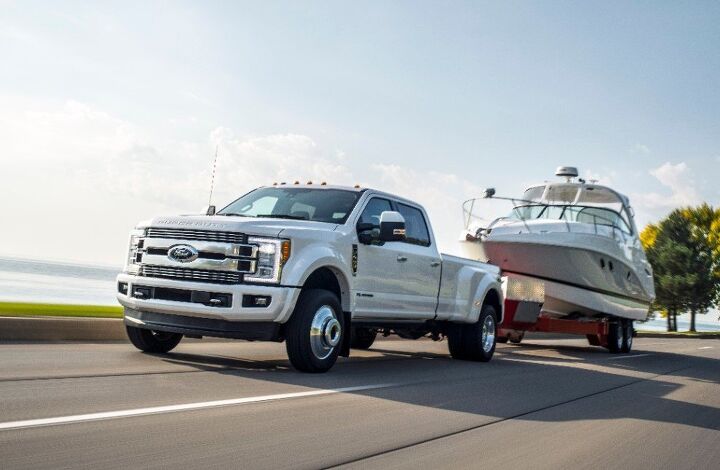

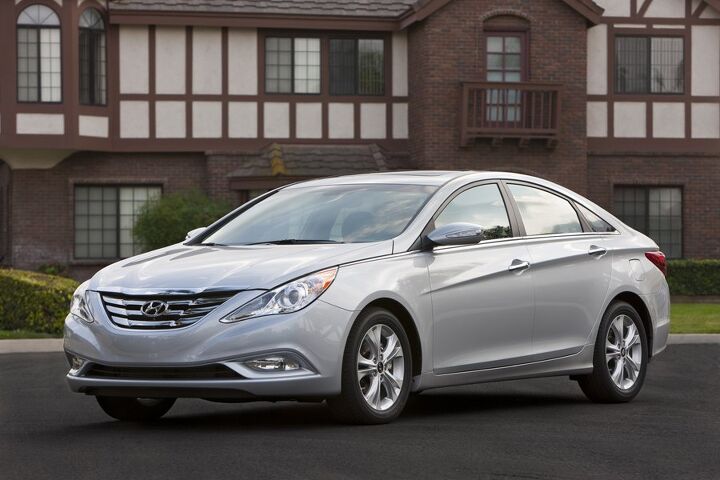
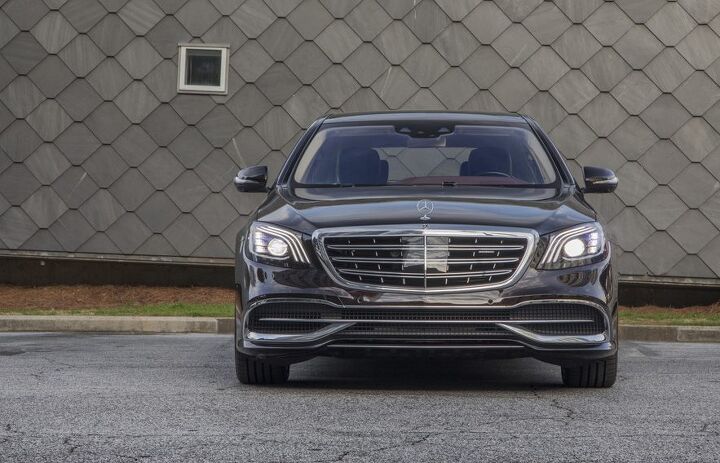


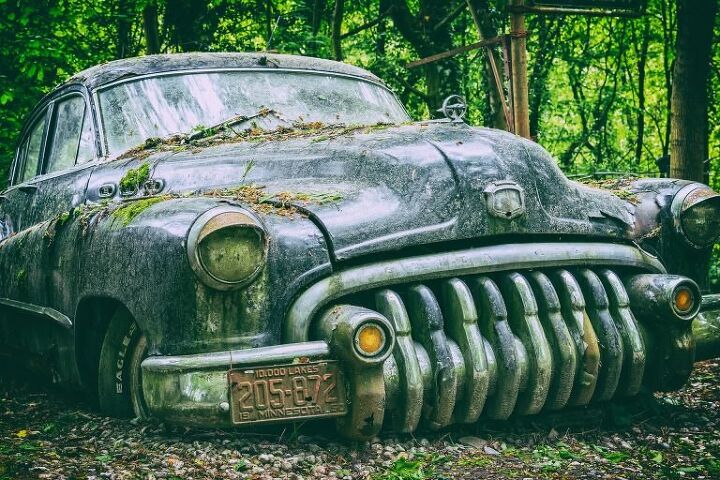


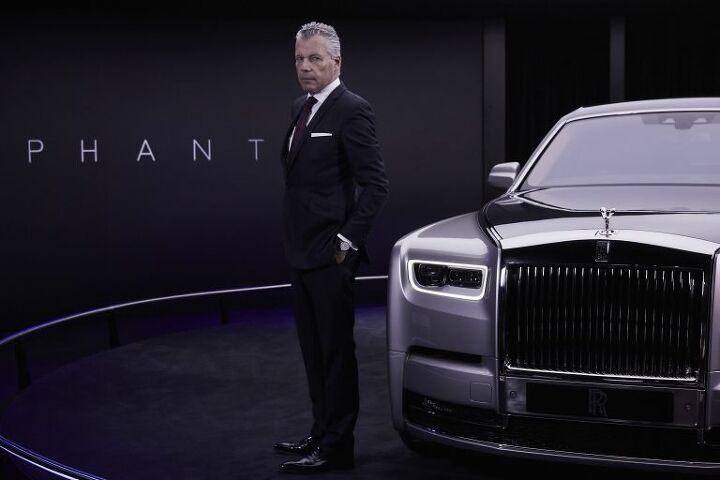
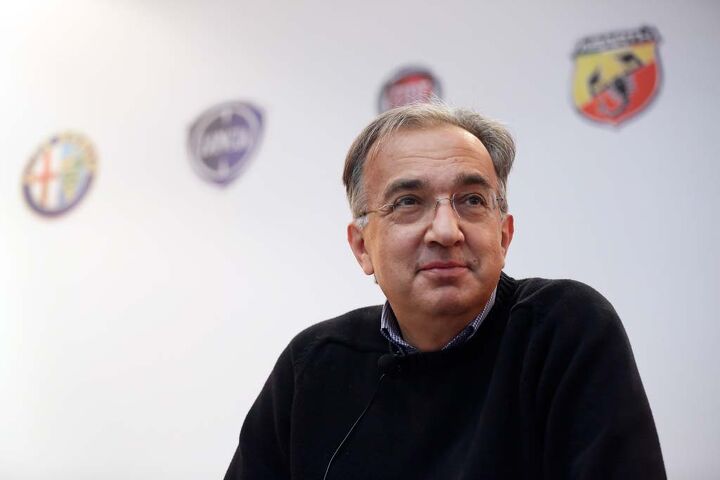


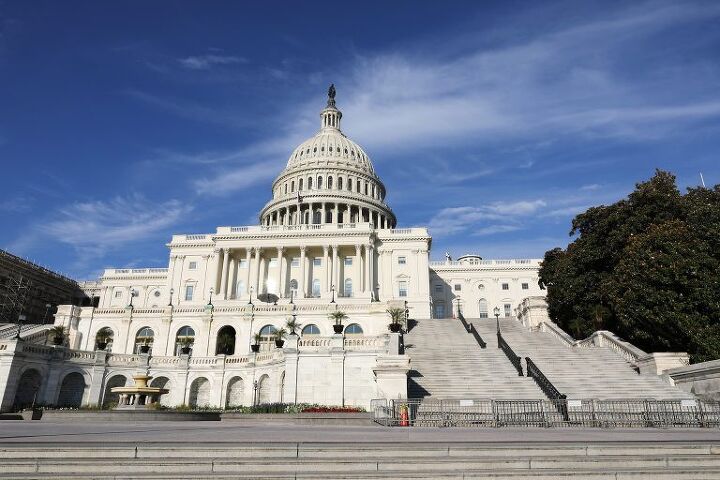

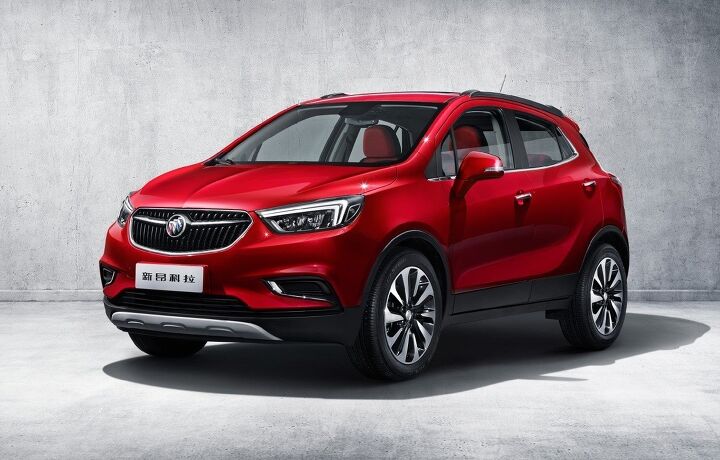



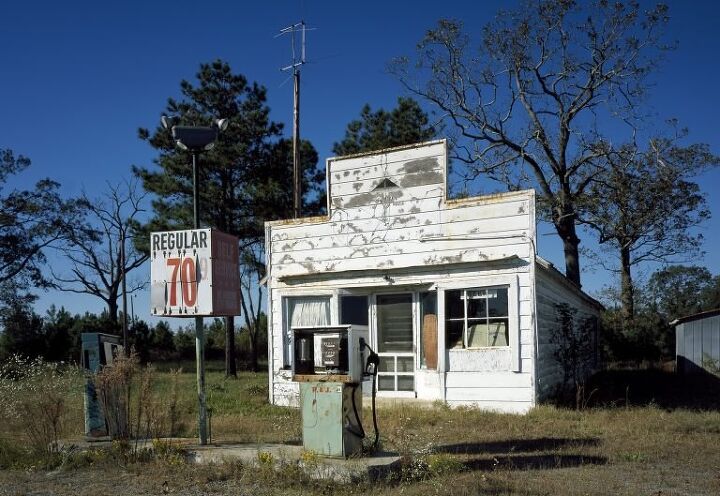





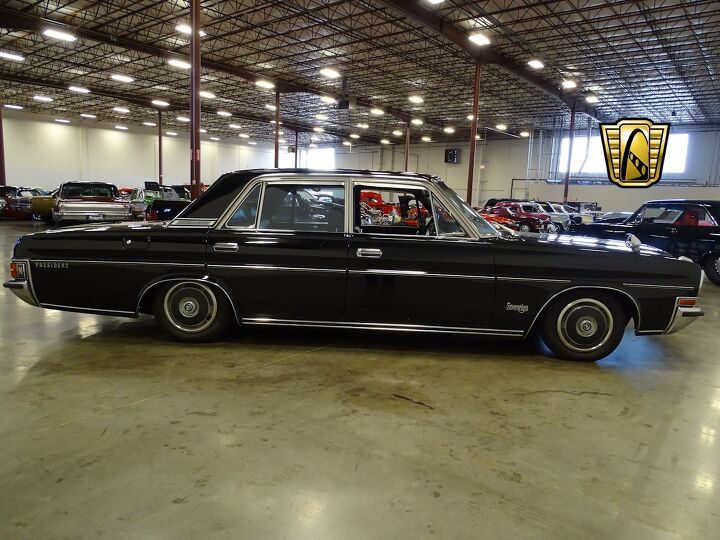
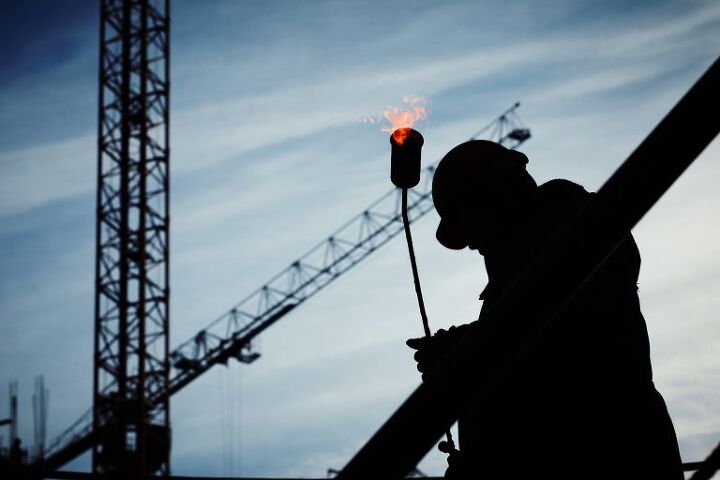

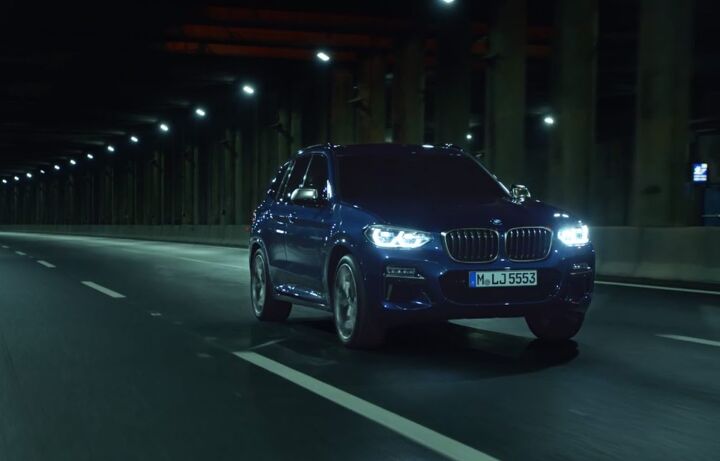



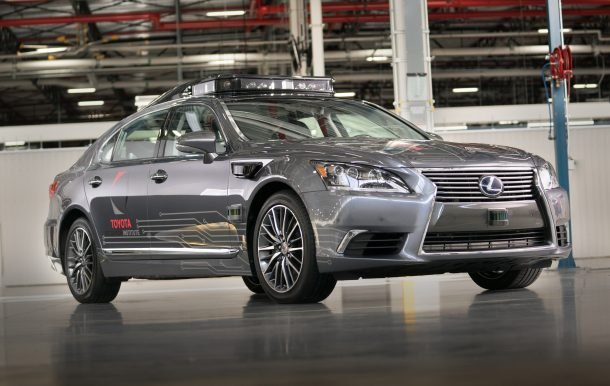
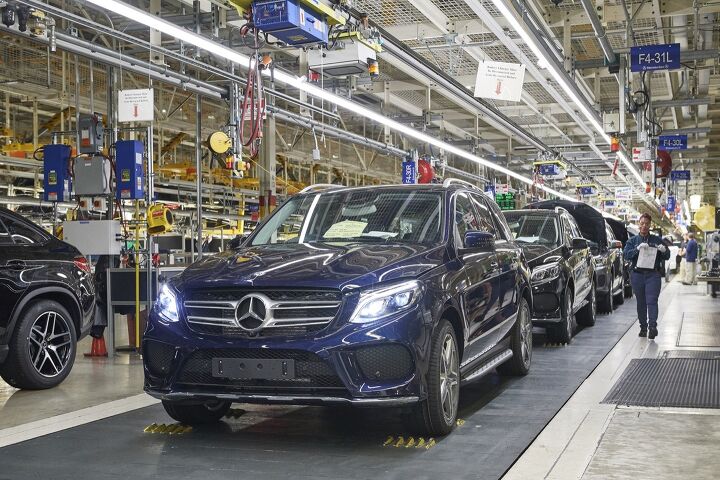

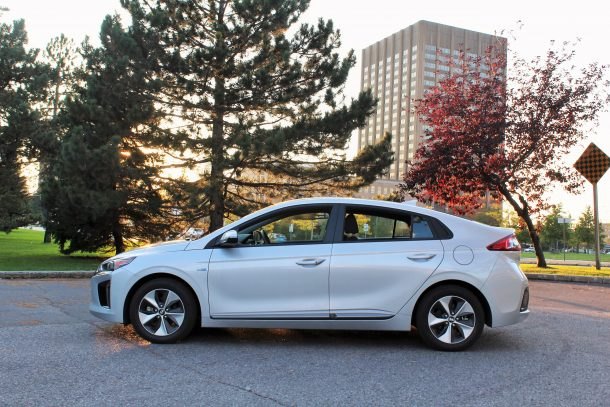



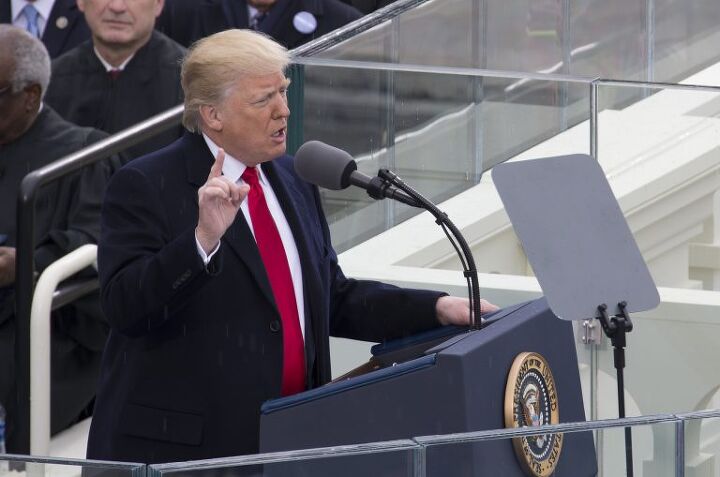
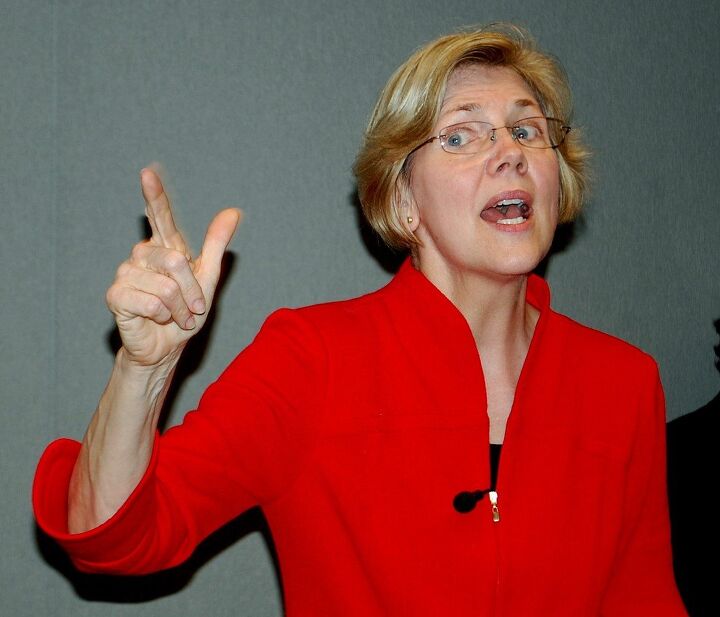





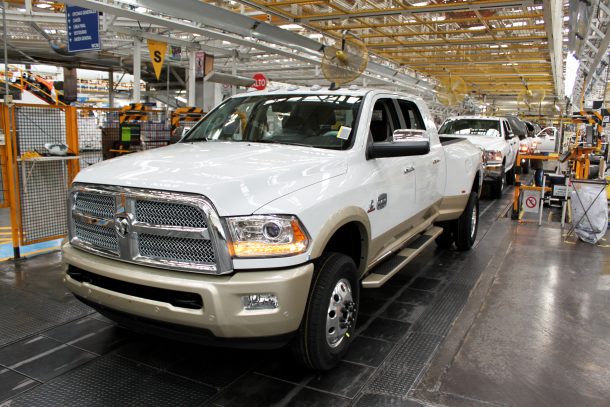


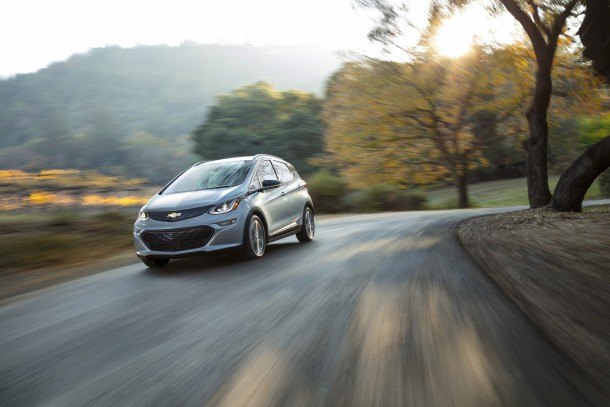

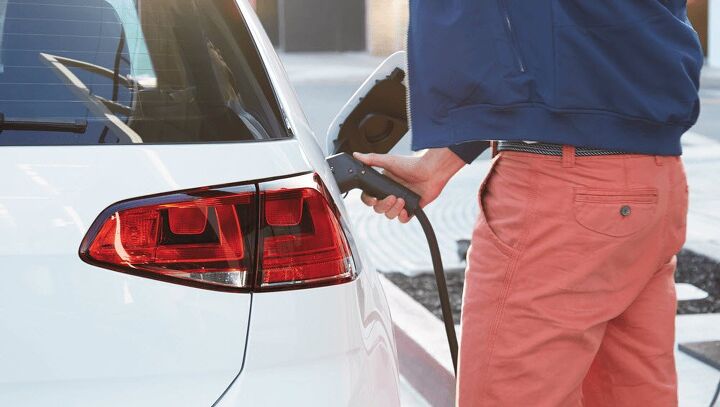

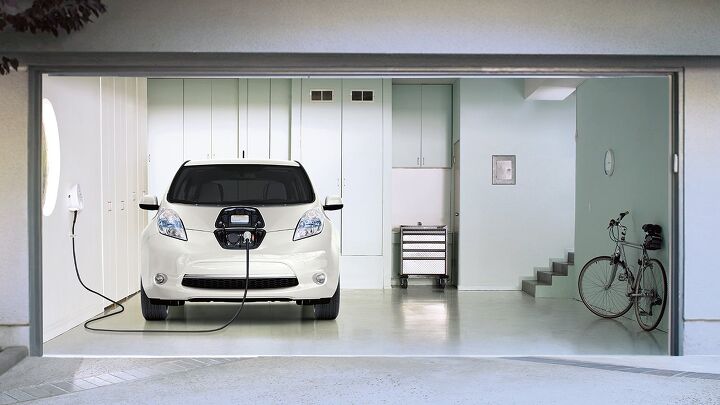
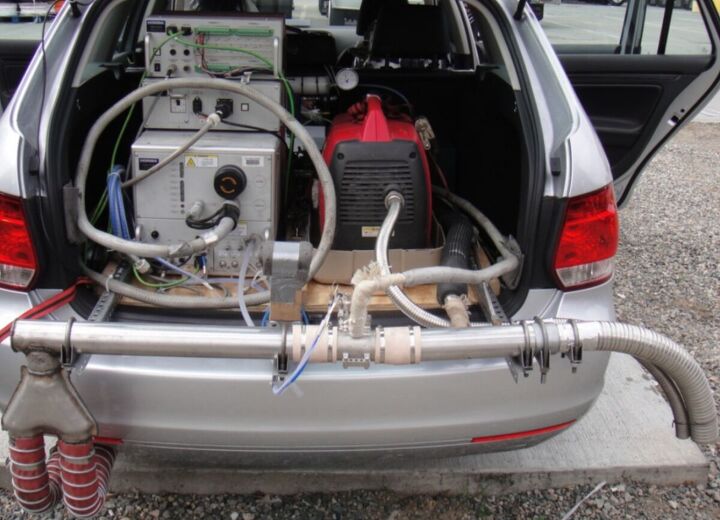













Recent Comments